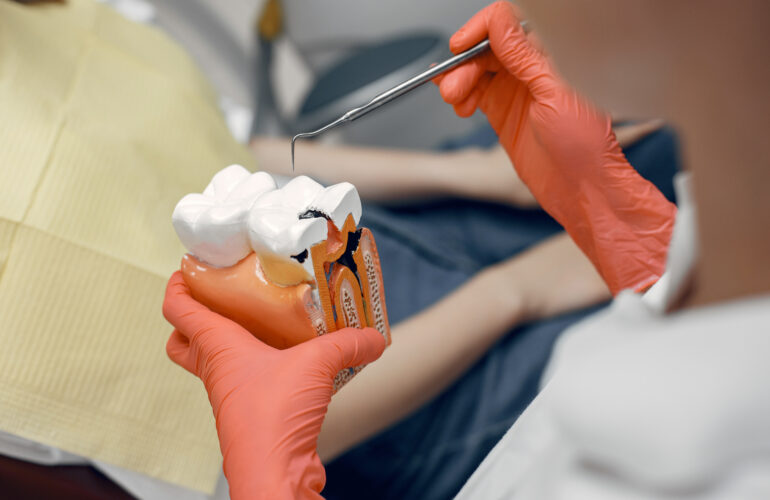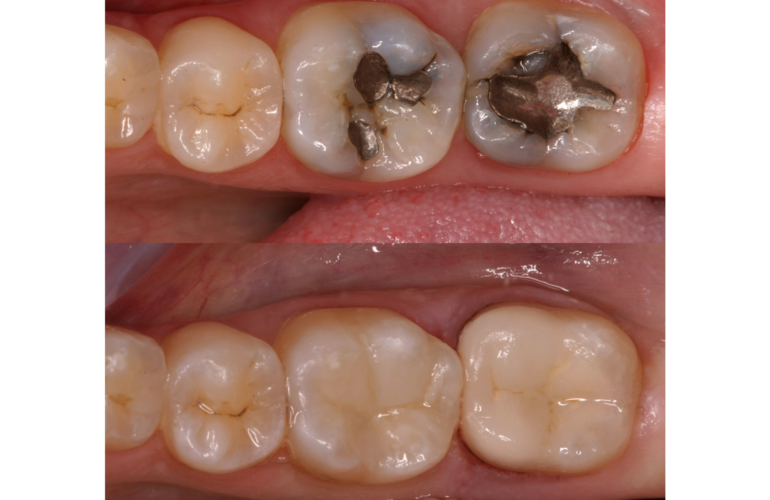Restorative dentistry goes beyond creating aesthetically pleasing smiles; it plays a crucial role in restoring and enhancing the functionality of teeth. While a radiant smile is undoubtedly a confidence booster, the functional benefits of restorative dentistry are equally significant. In this blog, we will explore the multifaceted advantages that extend beyond aesthetics, emphasizing the importance of maintaining oral health for overall well-being.
- Restoring Chewing Functionality: One of the primary functional benefits of restorative dentistry is the restoration of proper chewing functionality. Missing or damaged teeth can significantly impact an individual’s ability to chew food effectively, leading to digestive issues and nutritional deficiencies. Dental implants, bridges, and dentures are common restorative solutions that help recreate the natural biting and chewing functions, allowing individuals to enjoy a varied and nutritious diet.
- Preserving Jawbone Structure: Tooth loss not only affects the visible part of the smile but also has implications for the underlying jawbone structure. Without the stimulation provided by natural teeth roots, the jawbone may start to deteriorate over time. Dental implants, known for their ability to integrate with the jawbone, provide essential stimulation, preserving bone density and preventing further deterioration. This helps maintain facial structure and prevents a sunken appearance associated with bone loss.
- Enhancing Speech Clarity: Teeth play a crucial role in speech, influencing pronunciation and clarity. Missing or misaligned teeth can result in speech impediments and difficulties in articulation. Restorative dentistry interventions, such as dental implants or crowns, contribute to improved speech clarity by providing the necessary support and alignment for effective communication.
- Preventing Further Oral Health Issues: Restorative dentistry not only addresses current dental concerns but also helps prevent the development of additional oral health issues. For instance, a dental crown placed on a weakened tooth not only restores its strength but also shields it from further damage and decay. Timely restorative treatments can be a proactive measure in maintaining overall oral health, preventing complications that may arise from untreated dental issues.
- Boosting Self-Confidence and Mental Well-being: While the functional benefits are crucial, it’s essential not to overlook the impact of restorative dentistry on mental well-being. A restored and healthy smile contributes significantly to self-confidence and positive self-image. Individuals who undergo restorative procedures often report increased self-esteem and a greater willingness to engage in social interactions, ultimately leading to improved mental well-being.
Conclusion: In conclusion, the functional benefits of restorative dentistry extend far beyond the surface, encompassing chewing functionality, jawbone preservation, speech clarity, prevention of further oral health issues, and positive impacts on mental well-being. As dental technology advances, individuals have access to a range of restorative options tailored to their specific needs. Emphasizing the functional aspects of restorative dentistry highlights its integral role in enhancing not just the appearance but also the overall oral health and functionality of individuals, contributing to a healthier and more fulfilling life. Regular dental check-ups and prompt restorative interventions are key components of maintaining optimal oral health and well-being




